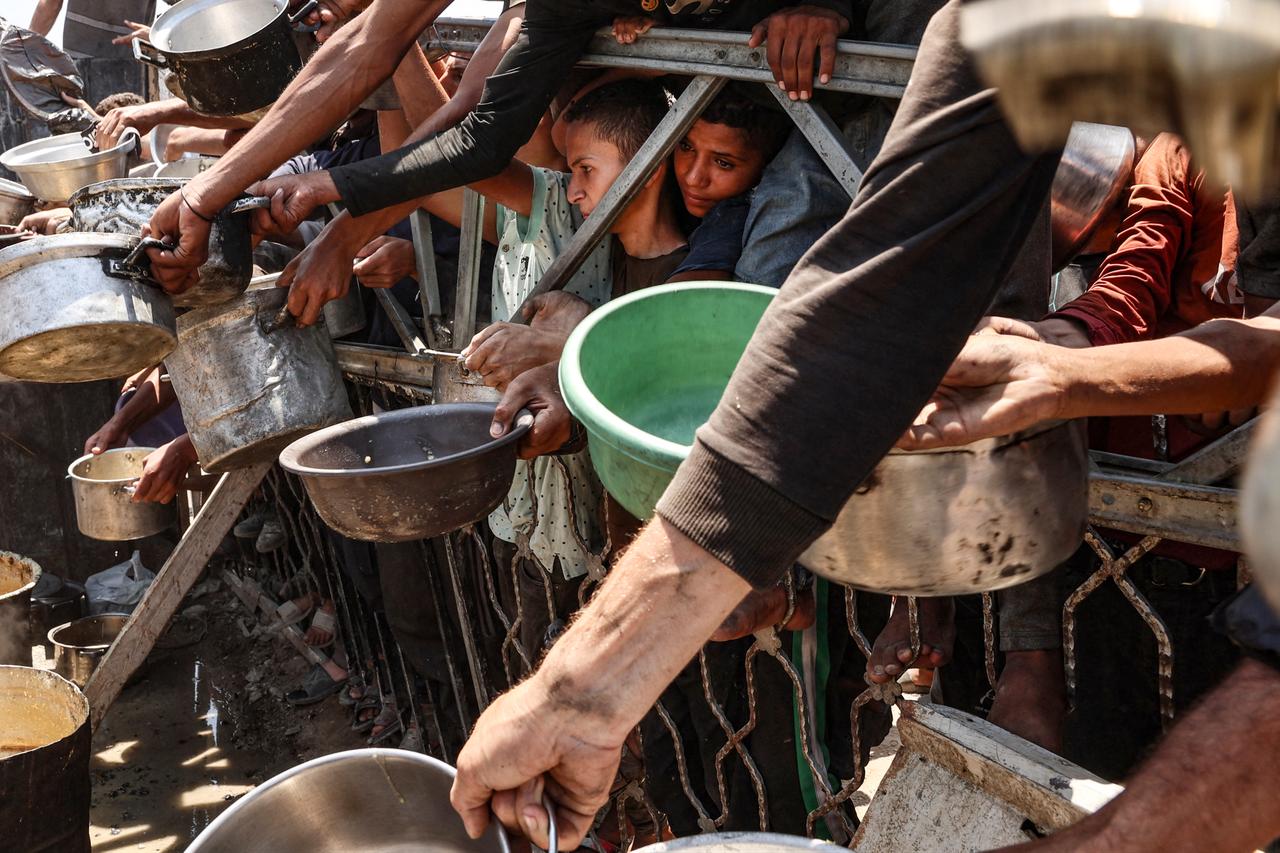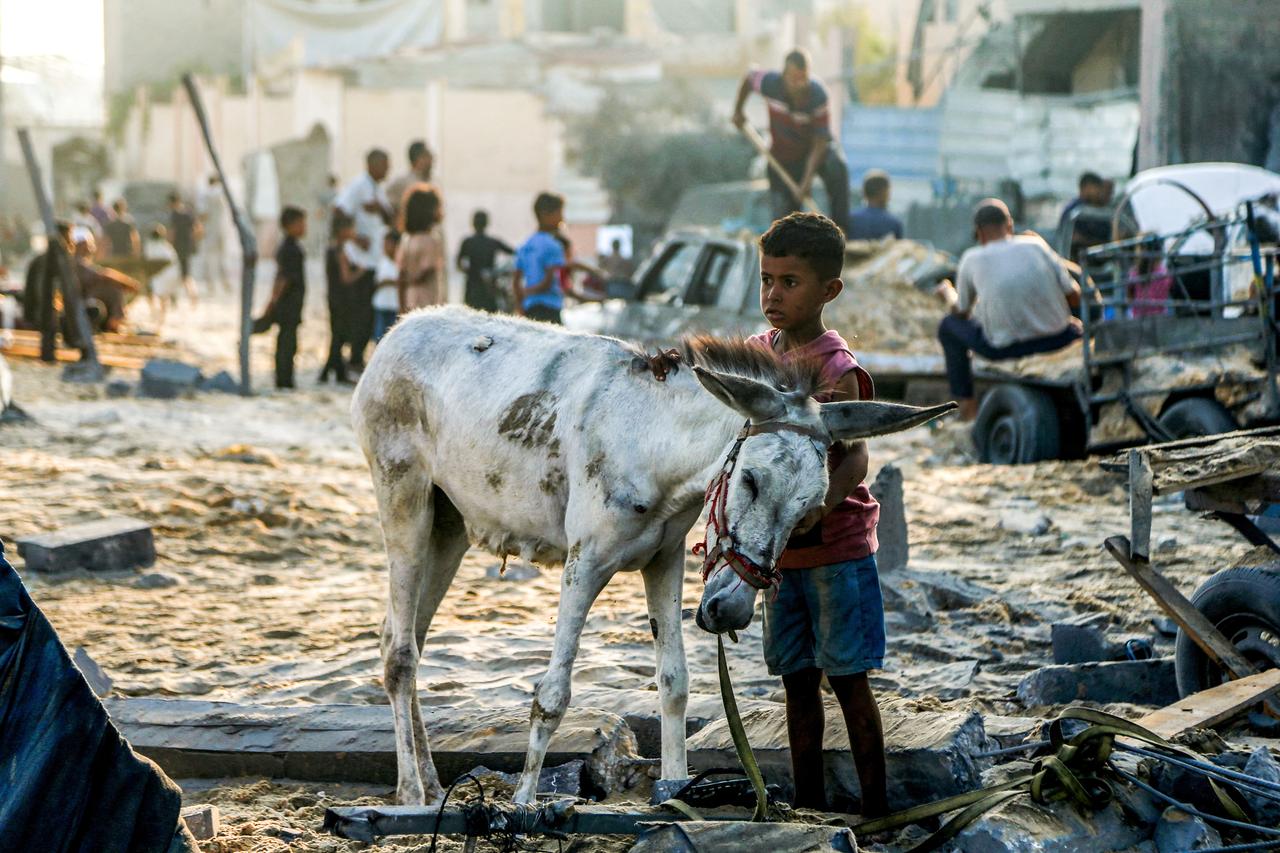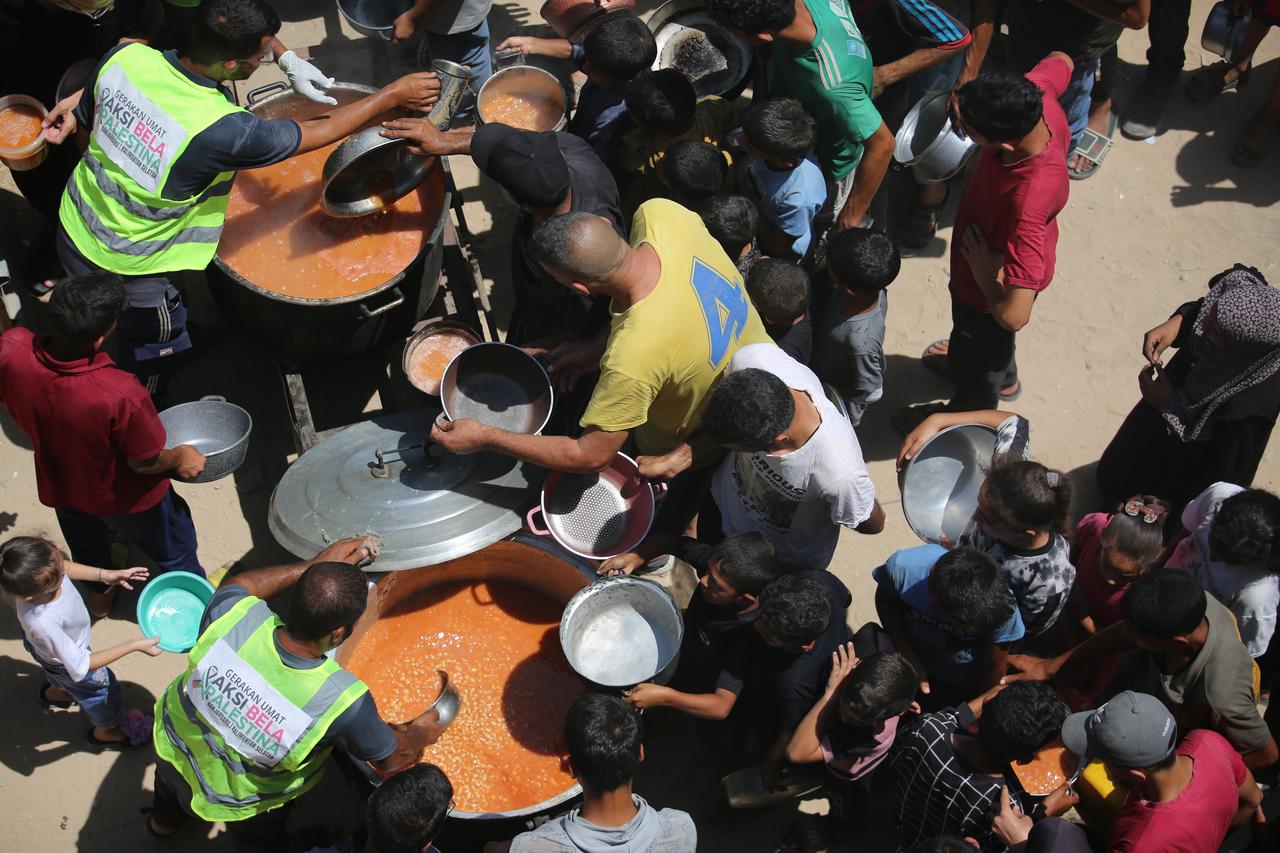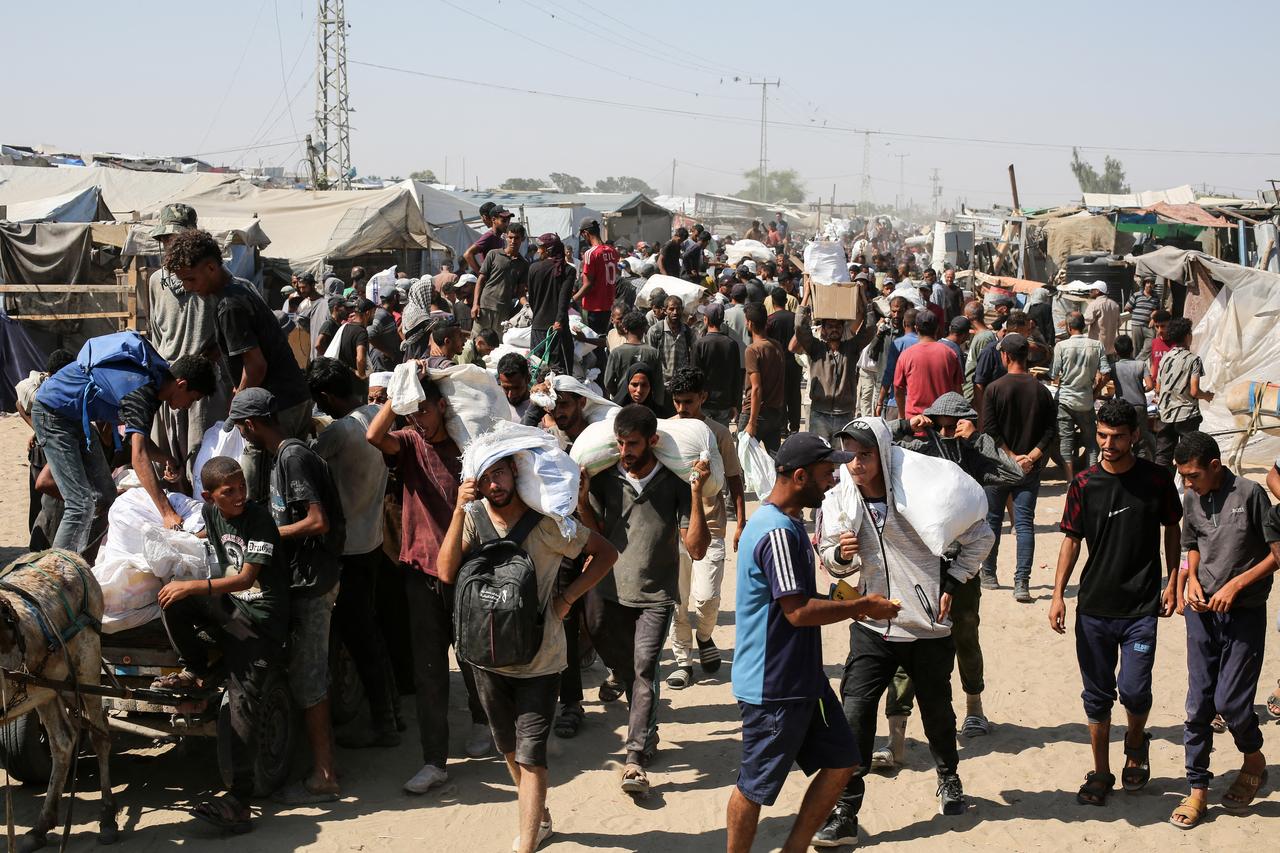
The "worst-case scenario of famine is currently playing out in the Gaza Strip," according to the Integrated Food Security Phase Classification (IPC), which warned Tuesday that "widespread death" will occur without immediate action.
The international authority on food crises said famine thresholds have been reached for food consumption in most of Gaza and for acute malnutrition in Gaza City, following nearly 22 months of war that has killed over 60,000 Palestinians.
While stopping short of a formal famine declaration, the IPC alert confirmed two of three key thresholds have been crossed. The report, based on data through July 25, found that one in three people in Gaza is going without food for days at a time, and nearly 17% of children under 5 in Gaza City are acutely malnourished.
"Mounting evidence shows that widespread starvation, malnutrition, and disease are driving a rise in hunger-related deaths," the IPC stated. "Latest data indicates that Famine thresholds have been reached for food consumption in most of the Gaza Strip and for acute malnutrition in Gaza City."
At least 147 people have died of starvation since October 2023, including 88 children, according to Gaza's Health Ministry. Hospitals report a rapid increase in hunger-related deaths among children under 5, with at least 16 deaths reported since July 17.

World Food Program emergency director Ross Smith emphasized the urgency during a Geneva briefing: "This is not a warning. This is a call to action. This is unlike anything we have seen in this century."
Smith compared the situation to historic disasters in Ethiopia and Biafra, adding, "We need urgent action now."
WFP official Jean-Martin Bauer clarified that while the report "does not formally declare famine," the indicators in Gaza have exceeded famine thresholds for food consumption and malnutrition. "We shouldn't wait for a hypothetical famine declaration to do everything we possibly can to prevent the suffering," he said.
Addressing recent airdrops by some countries, Smith called them "a last resort" that is "far too expensive and inefficient."
"While I appreciate the symbolic nature of it, it is not a practical solution. And we do have that practical solution waiting, ready at the borders of Gaza," Smith said, referring to reports that at least 11 Palestinians were injured when aid pallets fell on tents.

The IPC report details how Israel's "drastic restrictions" on food entry have limited shipments far below basic needs. Gaza's population requires an estimated 62,000 metric tons of food staples monthly. Israeli data shows no food entered Gaza in March or April, 19,900 tons entered in May and 37,800 tons in June.
Since May 27, over 1,000 people have been killed while trying to access food, according to the IPC. The report notes that "increasingly stringent blockades" by Israel have "dramatically worsened" the situation.
Israel announced measures over the weekend, including daily humanitarian pauses and airdrops. However, U.N. agencies say little has changed, with desperate crowds continuing to overwhelm delivery trucks.

U.S. President Donald Trump commented Monday on images from Gaza: "Those children look very hungry."
Israeli Prime Minister Benjamin Netanyahu has said, "No one is starving in Gaza" and that Israel has supplied sufficient aid throughout the war, "otherwise, there would be no Gazans." Israel's military criticized what it calls "false claims of deliberate starvation in Gaza."
The IPC has declared famine only a few times—in Somalia in 2011, South Sudan in 2017 and 2020, and parts of Sudan's Darfur region last year. A formal declaration requires data that limited access to Gaza has largely prevented.
"Just as a family physician can often diagnose a patient she's familiar with based on visible symptoms without having to send samples to the lab and wait for results, so too we can interpret Gaza's symptoms. This is famine," said Alex de Waal, author of "Mass Starvation: The History and Future of Famine."
WFP Executive Director Cindy McCain stated: "The unbearable suffering of the people of Gaza is already clear for the world to see. Waiting for official confirmation of famine to provide life-saving food aid they desperately need is unconscionable."